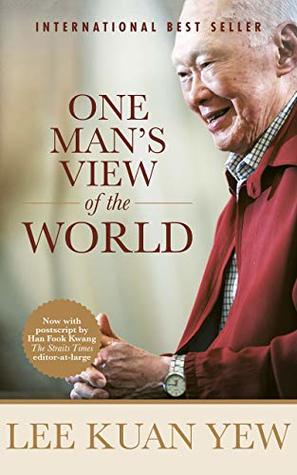More on this book
Kindle Notes & Highlights
there has to first be a recognition that some inequality is always going to be an inevitable part of globalised capitalism.
partly because there are disparities in human intellect, in effort, and in pure luck,
If you want smaller differences, you have to switch to socialism or try to wall your society off from the rest of the world – neither of...
This highlight has been truncated due to consecutive passage length restrictions.
There is no going back to the way the world was in the past. We cannot dis-invent the aeroplane, the Internet, the iPhone and iPads. You accept the world as it is, and find the best way of maximising your fortunes as a society, or you are left behind by the relentless pace of change found everywhere else. The world cannot possibly stop spinning for your sake.
money is often not being used on ground projects to improve lives but to line the pockets of politicians.
the heart of the issue is the perceived unavoidable trade-off between cutting emissions and growing the economy.
They are also hungrier for growth, and point out that it is somewhat disingenuous for the wealthier countries, having arrived at their present levels of development through environmentally unfriendly means, to now seek to impose onerous emissions targets on those seeking to catch up with them.
How do we put a stop to the relentless growth? The key, in my view, lies in educating women – which causes them to want fewer children.
you cannot stop the flow of human beings when they are running away to save their lives. The implications, then, are enormous. If massive waves of people move, the risk of conflict increases significantly.
Why should I allow Cantonese or Hokkien to infect the next generation? If you bring it back, you will find portions of the older generation beginning to speak in dialects to their children and grandchildren.
Every country needs one language that everybody understands.
it was the market value of an education in English that settled the problem.
For sentimental reasons and practical reasons of trade and business with China, we need Chinese as a second language. But we certainly do not need the dialects.
Quite often, the doctors and relatives of the patient believe they should keep life going. I do not agree. There is an end to everything and I want mine to come as quickly and painlessly as possible, not with me incapacitated, half in coma in bed and with a tube going into my nostrils and down to my stomach. In such cases, one is little more than a body.
You take life as it comes, with your physical capabilities declining over the years.
Singapore, as it stands, is the one corruption-free spot in a region where corruption is endemic.
People are promoted on the basis of merit, not of race, language or religion. If we uphold these institutions, we will continue to make progress. That is my greatest hope.
You have to distinguish between loneliness and solitude.


